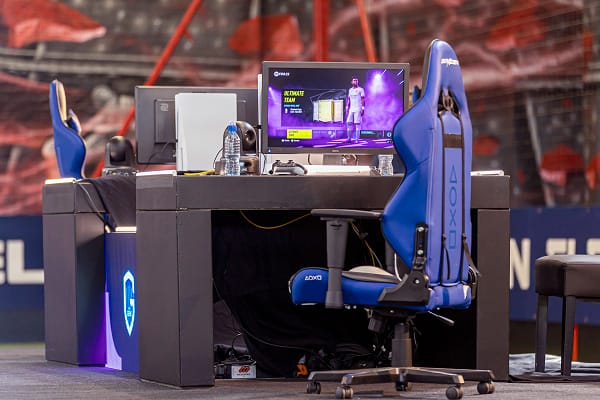The rise of esports is ushering in a new participant, and while we mean participants as players and fans, we also mean as bettors. By 2025, when esports betting is more commonplace, not only will it be another digital entertainment option along the spectrum, but we’ll also realize that esports betting can be seen increasingly as data-driven analysis, similar to the behaviours and attitudes around financial markets and some extent, the consumption of digital media.
Betting meets digital analysis
Today’s esports bettors, particularly digital-native Gen Z and Millennials, are approaching betting not as a casual gamble, but as a structured, research-heavy process. Much like stock traders or fantasy sports managers, these users leverage live data, historical statistics, and platform-integrated tools to inform their decisions.
This transformation aligns with broader shifts in how younger generations engage with content: through dashboards, real-time updates, and informed decision-making processes to watch the games happening.
The rise of data-savvy bettors in esports
In top esports titles like CS2, Dota 2, Valorant, and League of Legends, outcomes are brutally shaped by intricate in-game variables. Today’s bettors analyse team histories, player stats, recent meta-game shifts, and map-specific win rates before placing a wager.
We can even monitor roster changes and even regional patch updates to anticipate performance trends.
As noted in this GGbet review, the best platforms for esports betting are those built entirely around the games themselves, offering deep markets and tools that support this analytical approach. Far from a coin-flip mentality, modern esports betting resembles a digital decision tree, one where preparation and insight matter as much as instinct.
Why apecialist platforms enable smarter betting
Much of this behavioural shift is supported by platform architecture. General sportsbooks often list esports as an afterthought, offering only basic win/lose bets. In contrast, specialised platforms like GG.BET, which are dedicated solely to esports, provide environments tailored to analytical engagement.
Users can access over 14 esports titles, integrate live streams via Twitch, and explore niche markets like first blood, round winner, team objectives, or total kills.
These specialised platforms also provide live odds with real-time updates, enabling in-the-moment strategy shifts. By designing interfaces around the needs of esports fans, they encourage deeper interaction, not just broader exposure. As a result, we become smarter, more engaged users who treat betting like a skill-based discipline.
Real-world parallels: From trading desks to twitch
The behaviours of esports bettors increasingly resemble those of retail investors, crypto traders, and fantasy league enthusiasts. All operate within dynamic environments that reward timing, research, and pattern recognition. Dashboards, visual analytics, and mobile-first UX have become shared tools across these spaces.
Whether it’s analysing CS2 pistol rounds or monitoring stock volatility, the decision-making process draws from the same mental models. The gamification of platforms, complete with stats feeds, trends, and customizable alerts, further blurs the line between entertainment and analytical activity. As such, esports betting is becoming a new frontier in digital literacy and behavioural analytics.
Market context: Esports’ economic growth
The market growth has also been a factor. This transformation isn’t happening in isolation. Esports as a sector continues to grow rapidly. Global viewership has surpassed 500 million, while major brands, from Red Bull to Intel and Mercedes, are deepening their sponsorships.
The UK market alone has seen significant investment, with new esports organizations and media platforms emerging to support a competitive ecosystem.
Specialised platforms thrive not just because they offer bets, but because they’ve built around this momentum. Their infrastructure is aligned with the evolving preferences of esports fans, who expect interactivity, immediacy, and depth in every digital experience.
Conclusion – Betting as interactive analysis
What once was viewed as passive or instinctive has become dynamic and data-centric. Esports bettors today resemble digital analysts more than traditional gamblers. Their habits reflect a broader cultural shift toward informed, tech-augmented decision-making, a trend that stretches from investing apps to gaming communities.
Data here is also important, as the complexity of the gaming titles is what makes the market flow with so many different betting opportunities. As esports continues to grow, the platforms that serve its audiences will shape not only how people bet, but how they think. Betting, in this context, becomes a form of interactive analysis, one that blends knowledge, timing, and technological fluency into a uniquely modern skill set.
Please play responsibly. For more information and advice visit https://www.begambleaware.org
Content is not intended for an audience under 18 years of age

